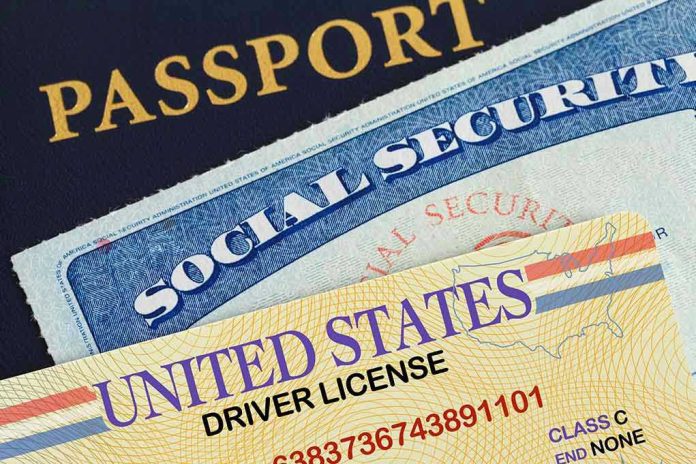
Sean Duffy reveals a startling breach in transportation regulations as states issue 194,000 Commercial Driver’s Licenses to foreign truck drivers who may not meet federal language requirements.
Story Overview
- 194,000 CDLs issued to foreign drivers may not comply with DOT standards
- Potential safety concerns arise from language barriers on the road
- The role of state governments in regulating and enforcing CDL requirements
- Implications for transportation policy and public safety
Language Standards Under Scrutiny
States across the nation are embroiled in controversy as they issue approximately 194,000 Commercial Driver’s Licenses to foreign truck drivers who may not meet the Department of Transportation’s English language proficiency standards. Sean Duffy, a prominent voice in the transportation sector, underscores the potential dangers posed by such actions. The DOT mandates that CDL holders must be able to read and speak English well enough to converse with the public, understand highway traffic signs, and respond to official inquiries.
We are suffering from the consequences of the Biden administration’s open border policies.⁰⁰A SUSPECTED TERRORIST from Uzbekistan should NEVER have been here, nonetheless been given a commercial trucking license! ⁰⁰Our NEW RULE would close the loopholes that allowed this… pic.twitter.com/aBwzUi5UZP
— Secretary Sean Duffy (@SecDuffy) November 18, 2025
This revelation raises the question of whether state governments are upholding these federal standards or compromising road safety by allowing drivers who may not fully comprehend critical communication needed in emergency situations. Furthermore, it prompts a deeper examination of the processes in place for verifying language proficiency during the licensing process.
State Versus Federal Regulations
The issuance of these licenses highlights a significant tension between state and federal regulations. While states have the authority to issue CDLs, they are expected to comply with federal guidelines to ensure a uniform standard of safety across the nation’s highways. The apparent lapse in adherence to the DOT’s language requirements suggests a need for stricter oversight and possibly a reevaluation of the licensure process.
The implications extend beyond individual states as the trucking industry forms a backbone of interstate commerce. A breakdown in enforcement of federal standards by one state can have ripple effects that compromise safety and efficiency across the country.
Safety and Public Policy Implications
Safety concerns are paramount when considering the potential consequences of language barriers among CDL holders. In emergency scenarios, the ability to communicate effectively is crucial. Language proficiency can mean the difference between a swift resolution and a catastrophic accident. This issue also brings to light the broader discussion on immigration and workforce integration, particularly in sectors critical to national infrastructure.
Policymakers must grapple with the balance between addressing labor shortages in the trucking industry and maintaining rigorous safety standards. As this issue gains traction, it may prompt legislative action to reinforce compliance with federal regulations and ensure that all CDL holders meet the necessary qualifications.



